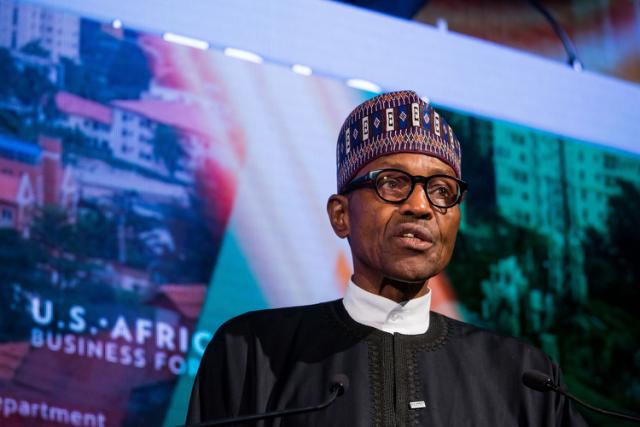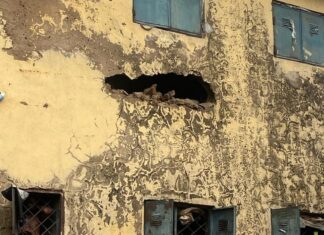By Emeka Alex Duru
On February 6, three months to the 2015 general elections, Muhammadu Buhari, then, the presidential candidate of the All Progressives Congress (APC), had taken a trip to Maiduguri, Borno State in course of his campaign.
Given the tensed situation in the state, many had likened the move to hunting in a lion’s den – a risky gamble of sort. And they had their reasons.
Maiduguri and other towns in Borno and by extension, the entire North East, were then in virtual state of war, on account of Boko Haram insurgency. Many security agents that had been dispatched to quell the insurgency, had clearly been overwhelmed by the terrorists. Thus, when the retired general embarked on the trip, it was seen as a suicide mission in some quarters.
“Was this not Maiduguri that even the residents were leaving in droves?” concerned Nigerians and party members had asked.
But the general was not deterred. In fact, to the surprise of many, the turn-out by his supporters, was tumultuous. And the security agents stationed at the Maiduguri Stadium, were overwhelmed.
In capturing the situation, a national daily, Leadership Newspaper, had reported, “At a point, the apparently exasperated soldiers and policemen were forced to shoot into the air and release some canisters of tear gas in a failed attempt to keep the crowd at bay.”
That, incidentally, did not work. In fact, as Buhari’s motorcade snaked into the ecstatic crowd, it became more difficult to maintain order.
The Newspaper described the situation further: “The crowd went wild when Buhari had to walk through the elevated isle of the mega podium. “Fans went out of control as they broke through the iron barricade that fenced them out and rushed towards the stand. The friendly show of support and love for the APC presidential candidate suddenly became a threat as all pleas for them to calm down fell on deaf ears. Sensing that it would amount to a waste of time if he should insist on speaking, Buhari took the advice of his aides and quickly allowed them to whisk him out of the venue.”
That was the Buhari phenomenon – indeed, a mystique of sort, as support flowed in the ways of the former military head of state, from all angles.
In line with the mood of the moment, Buhari’s trademark clinch-fist salute, became the pattern of greeting by his teeming followers, especially as they chorused the party’s campaign mantra, “Sai Baba”.
With that near-cult followership, Buhari easily trounced the then President Goodluck Jonathan in the March 28, 2015 presidential election – the first time a seating president could be beaten in an election in the country’s history.
Riding on the crest of the popularity, Buhari was lavishly invited by leading countries of Europe and America, each, reportedly asking him to visit with wish-list. And the President, obviously savoured the moment.
Almost three years into his election, however, Buhari is increasingly being left in the cold. Just as he attracted followership while he campaigned for votes, the president is currently being loathed, almost in similar measure.
Aside the usual genuflecting professional politicians and the largely, unwary foot soldiers who still romanticize the messiah-image of the president mostly in the North, he is fast losing his support base, especially among the elite and other critical segments of the electorate.
Hope betrayed
Hopes on the Buhari administration being better than previous ones, began to wane shortly after its inauguration. While campaigning in 2015, APC had promised better life and focused leadership. Perceived Spartan carriage of Buhari, its presidential candidate, added to the credibility of the pledge by the party.
When Buhari further anchored his campaign on eradicating corruption, tackling insecurity and reviving the economy –issues considered as major drawbacks of the Jonathan administration, APC was readily embraced by majority of the voters.
But close to three years after the election, there are incidences of the party betraying the citizens. In place of good life that the APC pledged, Nigerians have sunk deeper in poverty index. With prices of staple food items literally off the ceiling, youth unemployment expanding geometrically, and manufacturing companies closing shops or relocating to neighbouring countries on account of crushing production cost, life has somehow, become a misery to many Nigerians.
But perhaps, the area the APC has failed woefully is in the area of security. Though the administration had initially recorded commendable successes in containing the menace of Boko Haram, the insurgents have regained their voice.
Aside the Boko Haram insurgency, murderous Fulani Herdsmen are also constituting huge threat to the corporate existence of the country. Early in the month for example, the marauders invaded a Benue community and mowed over 73 in one fell swoop.
In other parts of the country, there are equally incidences of violence. Rivers State had a taste of the ugly trend when on December 31, 2017, more than 20 Christian faithful returning from New Year eve church service, were killed in Omoku, Egbema/Ndoni council of the state.
The rate of corruption is also noted to be on the increase, especially among members of the president’s kitchen cabinet, without any action taken against any of them.
But perhaps, what shocked Nigerians the most was the culture of nepotism which the current administration had virtually enthroned as state policy. In the exercise, more than 15 positions critical in the fight against corruption and insecurity, were handed to Buhari’s Fulani/Muslim kinsmen.
These included the headship of the Army, Police, Air Force, Immigration, Prisons, Department of State Security, National Intelligence Agency.
Given the complex nature of the country and the obvious lapses in performance profile by some of the officers, questions have been asked on Buhari’s flagrant regard of the considerations of the federal character principles in these appointments, even when there were better hands elsewhere.
There is also the issue of the President’s failing health that has made the government run virtually on snail speed.
Third Force to the rescue?
Without any signs of the president changing in his attitude and style of administration, Nigerians started becoming worried that the country was headed for the precipice. That was when the clamour for a third force began to emerge.
Former Education Minister, Dr. Obiageli Ezekwesili, began to give the agenda a form, when, in a television encounter, on Sunday, January 14, 2018, she amplified her pet project of leading a campaign that would see neither the APC, nor the Peoples Democratic Party (PDP), winning the 2019 general elections.
She had earlier tweeted on the essence of her new agenda, stressing, “My political agenda is simple. I shall actively campaign against APC and PDP in the 2019 elections except in rare cases where they field new minds with a strong record of public interest”.
Ezekwesili, who served under a PDP-led administration, was not explicit on any agenda at forming another party. But the declaration, which came barely five days after the Independent National Electoral Commission (INEC) had unfolded timetable of activities leading to the 2019 general elections, was seen as setting a template for a new wave of political movement in the country.
Obasanjo leads the attack
In line with the suspicion in some quarters that Ezekwesili may have been a fore runner to former President Olusegun Obasanjo, the ex-leader eventually came out with a blistering and excoriating attack on the Buhari presidency, literally dismissing it as having failed Nigerians at all fronts.
He particularly faulted Buhari over nepotism, which he said, bordered on clannishness and his inability to bring discipline to bear on errant members of his kitchen cabinet. “This has grave consequences on performance of his government to the detriment of the nation. It would appear that national interest was being sacrificed on the altar of nepotistic interest”, Obasanjo noted.
He also accused the President of exhibiting poor understanding of the dynamics of internal politics, stressing that the trend has led to more division and inequality in the country.
Obasanjo also blamed Buhari for not taking responsibility on actions of his government, choosing rather, to engage in buck-passing.
According to Obasanjo, the President was voted to fix things that were bad and not engage in the blame game.
On account of these failings and others, he argued, “President Buhari needs a dignified and honourable dismount from the horse (Presidency). He needs to have time to reflect, refurbish physically and recoup and after appropriate rest, once again, join the stock of Nigerian leaders whose experience, influence, wisdom and outreach can be deployed on the sideline for the good of the country”.
Not wanting to be seen as making case for APC or PDP, Obasanjo maintained his earlier position that both parties lacked the capacity to steer the affairs of the country aright.
In their place, he suggested a Coalition for Nigeria (CN), adding that the Movement at this juncture needs not be a political party but one to which all well-meaning Nigerians can belong. The Movement, he stressed, must be a coalition for democracy, good governance, social and economic well-being and progress, to salvage and redeem the country.
He stated that the Movement may with time, metamorphose to a political party but he would not be part of it.
Presiding Pastor of the Latter Rain Church, Tunde Bakare, had earlier made allusion to a third force, when he wrote off the APC and PDP.
He had emphasised that the APC and PDP had failed the country, stressing however that despite their obvious inability to rise to the expectations of the citizens, the electorate could still remedy the situation by taking their destiny in their hands in 2019.
Like Obasanjo and Ezekwesili, Bakare was not emphatic on a new political party squaring up against APC and PDP.
A human rights activist who asked not to be mentioned, however hinted on a possibility of a Third Force in form of a political party, coming up in the days ahead to serve as alternative to the APC and PDP.
In an interaction with our correspondent in Lagos, he hinted on likelihood of one of the newly registered political parties or a fresh one, serving as a rallying point to disenchanted members of APC, PDP and other principled Nigerians to provide the needed leadership.
That, perhaps, may be what Obasanjo and his emerging team, may have in mind.











